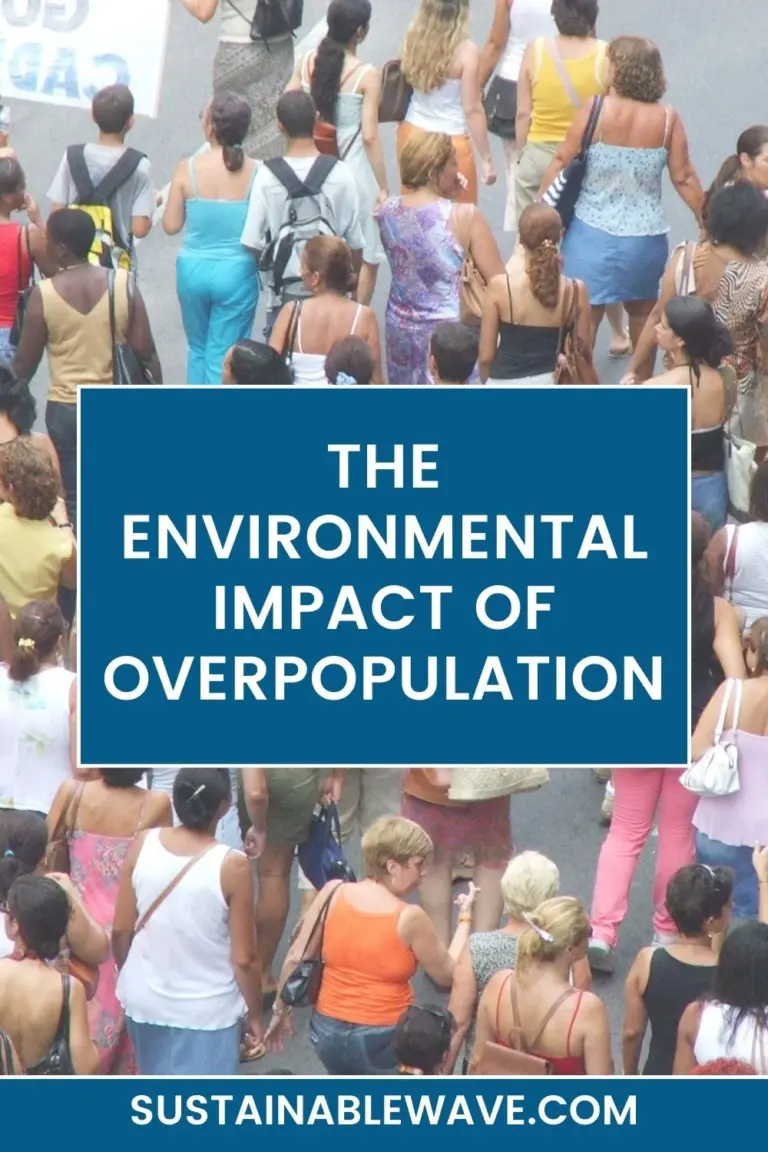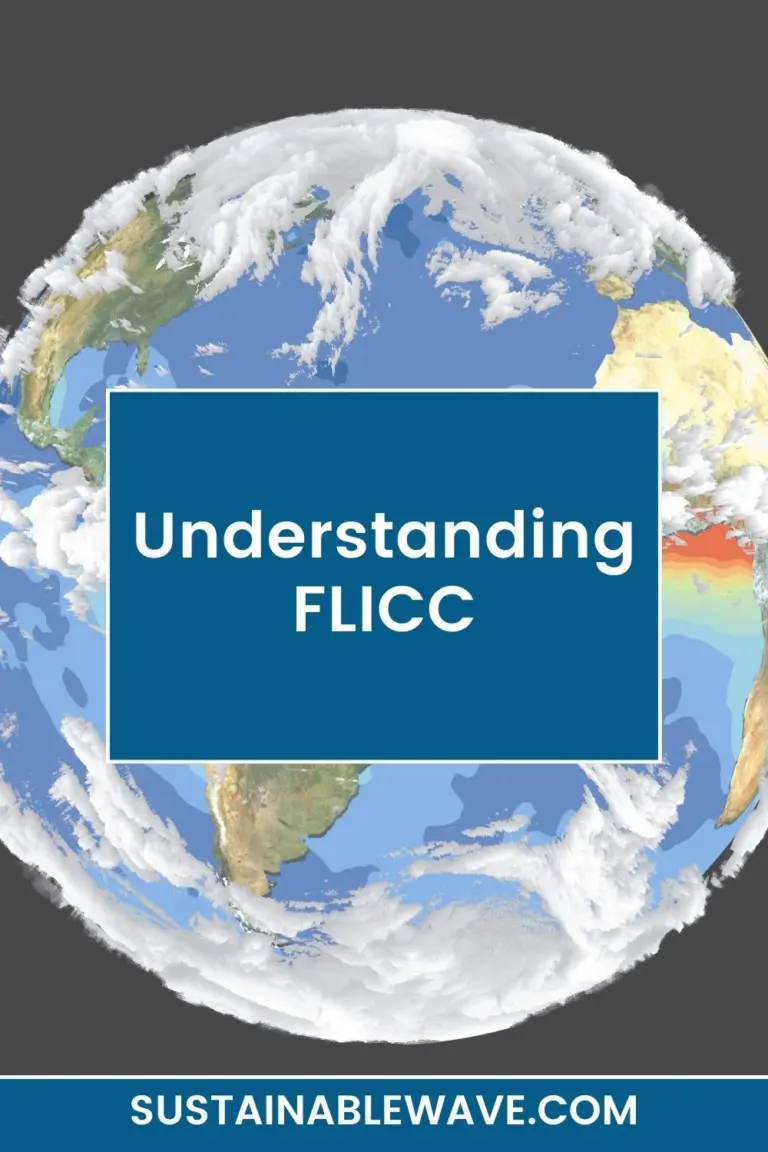Have you ever stumbled upon the term “Intersectional Veganism” and wondered, “What’s this all about?” Well, you’re not alone.
Intersectional Veganism is a philosophy that extends traditional vegan principles to include the interconnectedness of all forms of oppression. It advocates for animal rights while simultaneously challenging systemic injustices like racism, sexism, and classism in the pursuit of comprehensive social justice.
Buckle up as we unravel the essence of intersectional veganism and its significance in our modern world.
What Is Intersectional Veganism?

Intersectional veganism goes beyond the conventional confines of avoiding animal products.
It’s a holistic approach that blends veganism with intersectional feminism, highlighting the interconnectedness of different forms of oppression, including speciesism, racism, sexism, and more.
This view contends that the fight against one form of injustice should not overshadow others; instead, they should be fought collectively.
The Birth of Intersectional Veganism
Intersectional veganism finds its roots in the theory of intersectionality, a concept put forth by American lawyer and civil rights advocate, Kimberlé Crenshaw in 1989. Originally developed to shed light on the experiences of black women who were victims of compounded discrimination based on both race and gender, intersectionality was a revolutionary step toward understanding the complex layers of social oppression.
In essence, intersectionality suggests that various forms of social stratification, such as race, class, and gender, do not exist separately from each other but are interwoven. Therefore, a person’s lived experiences are shaped by these interconnected social realities. Over time, the scope of intersectionality expanded to include other marginalized groups and systems of oppression, providing a more nuanced understanding of systemic injustice.
Intersectional veganism arose when this theoretical framework was applied to the vegan movement. Advocates argued that speciesism – discrimination based on species membership – was another form of oppression that should be recognized and fought against within the intersectionality framework. Hence, intersectional veganism was born, a philosophy that seeks to fight all forms of oppression, including those against animals.
Veganism and Social Justice
Veganism has always had deep connections with social justice. Originally a movement solely centered around advocating for animal rights and promoting a diet free from animal products, the principles of veganism have expanded over time to challenge other forms of oppression. This evolution stems from the recognition that all forms of injustice are interconnected.
Vegan activists began to understand that injustices such as racism, sexism, and classism were intrinsically linked to speciesism. For instance, the meat and dairy industries often exploit marginalized human populations, leading to a form of ‘double oppression’ both for the animals being used and the people being exploited.
As such, intersectional veganism emerged as a way to fight for animal rights while also acknowledging and combating other systemic injustices. By doing so, it offers a more inclusive, holistic approach to social justice, proving that veganism is not just about food but about promoting equality and justice for all beings.
Intersectional Veganism: Not Just About Food
While diet is a significant component of veganism, the philosophy of intersectional veganism extends far beyond what we put on our plates. It encompasses every aspect of life, from the clothes we wear and the cosmetics we use to the entertainment we consume, and even the language we use.
Fashion and beauty industries, for example, have a long history of exploiting animals for materials like fur, leather, wool, and silk, or testing products on animals. Intersectional vegans challenge this by advocating for cruelty-free, ethically made alternatives.
In entertainment, intersectional veganism calls out the use and abuse of animals in circuses, zoos, and marine parks, where animals are often kept in subpar conditions and made to perform for human amusement.
Even language isn’t exempt. Intersectional vegans argue that everyday phrases like “kill two birds with one stone” or “more than one way to skin a cat” normalize violence against animals. They promote the use of cruelty-free language as part of their practice.
In essence, intersectional veganism challenges the status quo in all areas where animals, and other marginalized groups, are exploited, pushing for systemic change and promoting a culture of compassion and respect.
The Core of Intersectional Veganism
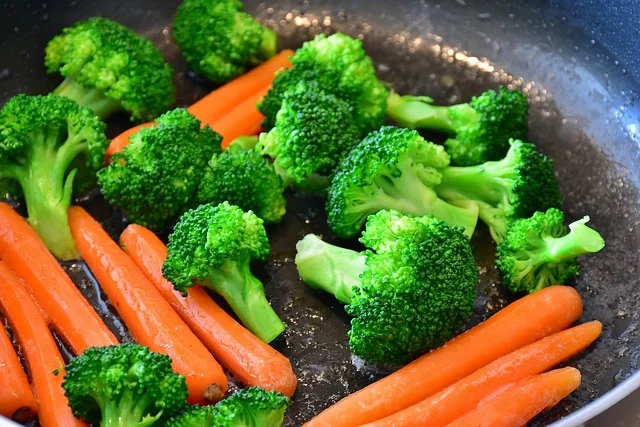
Speciesism is a form of discrimination that involves assigning different values, rights, or special considerations to individuals based on their species membership. This bias often results in humans considering themselves superior to animals, justifying the mistreatment and exploitation of non-human animals for their benefit.
In the context of intersectional veganism, speciesism is seen as a foundational form of oppression that intersects with others. For instance, consider factory farming. This practice doesn’t just harm animals; it also often exploits low-income individuals and immigrants who work under harsh conditions for meager pay. In this scenario, speciesism intersects with classism and racism, resulting in multi-layered oppression.
By shining a light on speciesism, intersectional vegans hope to expose these connections and encourage people to challenge their prejudices against different species. The ultimate goal is to foster a society where every being, regardless of their species, is treated with respect and kindness. The fight against speciesism, therefore, forms the backbone of intersectional veganism, guiding its broader efforts to challenge all forms of oppression.
Intersectional Veganism vs. Traditional Veganism
Traditional veganism, as it was initially defined by Donald Watson in 1944, focuses primarily on refraining from the use of animals for food, clothing, or any other purpose. It’s a lifestyle and a dietary choice driven by a range of motivations, including animal rights, health, and environmental concerns.
Intersectional veganism, however, expands upon this. While it upholds the core tenets of traditional veganism – the exclusion of animal products and the pursuit of animal rights – it also recognizes the interconnectedness of various forms of oppression. It advocates for a more inclusive approach to activism, aiming to challenge not only speciesism but also other systemic injustices such as racism, sexism, and homophobia.
The line between these two forms of veganism is drawn based on this expanded scope of intersectional veganism. While traditional veganism prioritizes animal rights, intersectional veganism argues that we cannot fully address speciesism without also considering and combating other forms of oppression.
The Challenges and Criticisms of Intersectional Veganism
Despite its progressive approach, intersectional veganism faces criticism and challenges. Some argue that by attempting to fight all forms of oppression simultaneously, the movement risks diluting its message and spreading its efforts too thinly.
Critics worry that intersectional veganism may distract from the core issue of animal rights, causing the plight of animals to be overlooked amidst broader social justice issues.
Additionally, intersectional veganism confronts the challenge of uniting different social justice movements, which often have distinct histories, goals, and strategies. Building alliances between these movements can be a complicated and delicate process.
There’s also the issue of pushback from those uncomfortable with confronting their privilege or the systemic injustices ingrained in society. Discussions about racism, sexism, or homophobia can be uncomfortable, and people often resist being drawn into these conversations, especially within the context of veganism, which they might view solely as an animal rights issue.
Despite these challenges, intersectional vegans argue that their approach is essential for achieving comprehensive social justice. They believe that by ignoring the intersections of oppression, we inadvertently support the very systems of power we aim to dismantle.
A Brief Primer On Non-Intersectional Veganism
Non-intersectional veganism, often referred to as traditional veganism, primarily focuses on the principle of abstaining from the use and exploitation of animals. This lifestyle choice, which encompasses dietary habits and consumer behavior, is primarily motivated by a concern for animal rights.
Traditional vegans may also embrace this lifestyle due to environmental considerations or health benefits. However, the central objective remains to cease the exploitation of animals for food, clothing, testing, or any other purpose.
While the compassion for animals is commendable in this approach, non-intersectional veganism may inadvertently overlook the interconnectedness of various social injustices and forms of oppression.
The Intersection Between Feminism & Veganism
The intersection between feminism and veganism can be seen in the common goal of opposing exploitation and promoting equality. Just as feminism fights against the oppression and exploitation of women, veganism fights against the exploitation of animals.
Moreover, the industrialized farming industry often subjects female animals to specific exploitations based on their sex, such as the constant impregnation of cows in the dairy industry or the selective hatching of female chickens in the egg industry.
Intersectional veganism argues that the patriarchal systems that oppress women are intrinsically linked to the speciesist systems that exploit animals, hence integrating feminism into its practice.
The Intersection of Race & Veganism
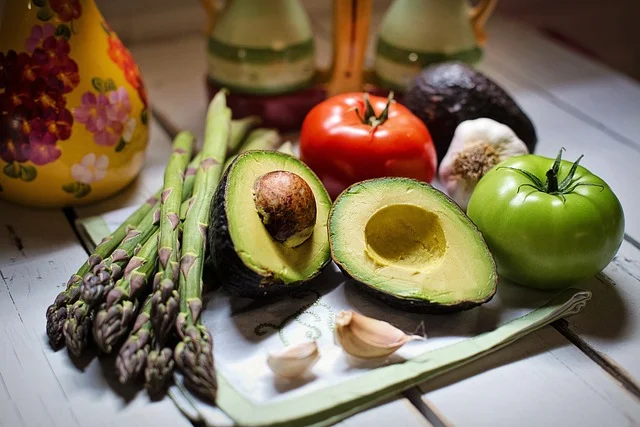
The intersection of race and veganism is an essential aspect of intersectional veganism. Historically, veganism has often been framed as a white, middle-class lifestyle, potentially excluding marginalized and racialized communities.
However, people of color have a rich history of plant-based diets and animal advocacy. Intersectional veganism recognizes this and seeks to challenge the stereotypes and structural barriers that can make veganism less accessible to these communities.
Additionally, it acknowledges that racial injustice and speciesism are interconnected forms of oppression, emphasizing the importance of fighting against both in the pursuit of a more equitable world.
Exploring Examples: Intersectional Veganism in Action
To better understand intersectional veganism, let’s look at some examples of it in action.
One notable instance is the work of the Food Empowerment Project (FEP), an organization that seeks to create a more just and sustainable world by recognizing the power of one’s food choices. FEP not only advocates for veganism as a means to protect animals but also fights against unjust food systems that exploit farm workers and disproportionately affect marginalized communities.
Another example is the Vegan Hip Hop Movement, which links veganism to hip-hop culture. By doing so, they challenge the stereotype of veganism as a white, elitist lifestyle and make it more accessible to diverse racial and socio-economic groups.
Collectively Free is another intersectional organization working to end all forms of oppression, including speciesism. They conduct protests, open rescues, and even engage in creative forms of activism such as “disruption” where they interrupt public spaces to draw attention to speciesism and its links with other forms of social injustice.
These examples illustrate how intersectional veganism extends beyond diet, encompassing a broader struggle for justice and equality. They demonstrate the movement’s commitment to challenging systemic oppression and creating a more inclusive society.
The Path to Becoming an Intersectional Vegan: A Step-by-Step Guide
Embarking on the journey of becoming an intersectional vegan is a profound commitment to battling not only speciesism but all forms of oppression.
Here’s a step-by-step guide to aid you in this transformative journey:
- Understanding Intersectional Veganism: The first step towards becoming an intersectional vegan is understanding what it truly entails. Take the time to educate yourself about the concept of intersectionality and how it intersects with veganism. Acknowledge that this path is not solely about animal rights but involves a wider commitment to fighting all forms of oppression, including racism, sexism, and classism.
- Educating Yourself: Start reading books (affiliate link), listening to podcasts, watching documentaries, and following social media accounts focused on intersectionality and veganism. Some recommended resources include the works of Dr. Breeze Harper, the creator of the Sistah Vegan Project, and Christopher Sebastian, a prominent speaker on the intersections of speciesism, sexism, and racism.
- Reflecting on Personal Privileges and Biases: Recognize your privileges and confront your biases. Engage in self-reflection and identify ways in which you may inadvertently contribute to systems of oppression. This step is challenging but crucial.
- Making Conscious Choices: Begin to incorporate your understanding of intersectional veganism into your everyday life. This goes beyond adopting a plant-based diet. Consider the impact of your choices on humans, animals, and the environment. For example, opt for cruelty-free products, choose ethically-made clothing, and support businesses that align with your principles.
- Joining Communities: Connect with like-minded individuals and groups that promote intersectional veganism. Participate in local meetups, online forums, or social media groups. These communities can provide invaluable support, resources, and inspiration on your journey.
- Promoting Intersectional Veganism: Use your platform, no matter how small, to raise awareness about intersectional veganism. This could be as simple as sharing resources on your social media, starting conversations with friends and family, or even organizing events in your community.
- Continuous Learning and Adapting: Recognize that the journey to becoming an intersectional vegan is ongoing. You will continually learn and adapt your beliefs and behaviors as you grow more knowledgeable. Be open to new information, be willing to adjust your actions accordingly, and most importantly, be gentle with yourself during this journey.
Remember, the goal of intersectional veganism isn’t about achieving perfection but about striving to make compassionate, conscious choices that resist oppressive systems and contribute to a fairer world.
Key Takeaways
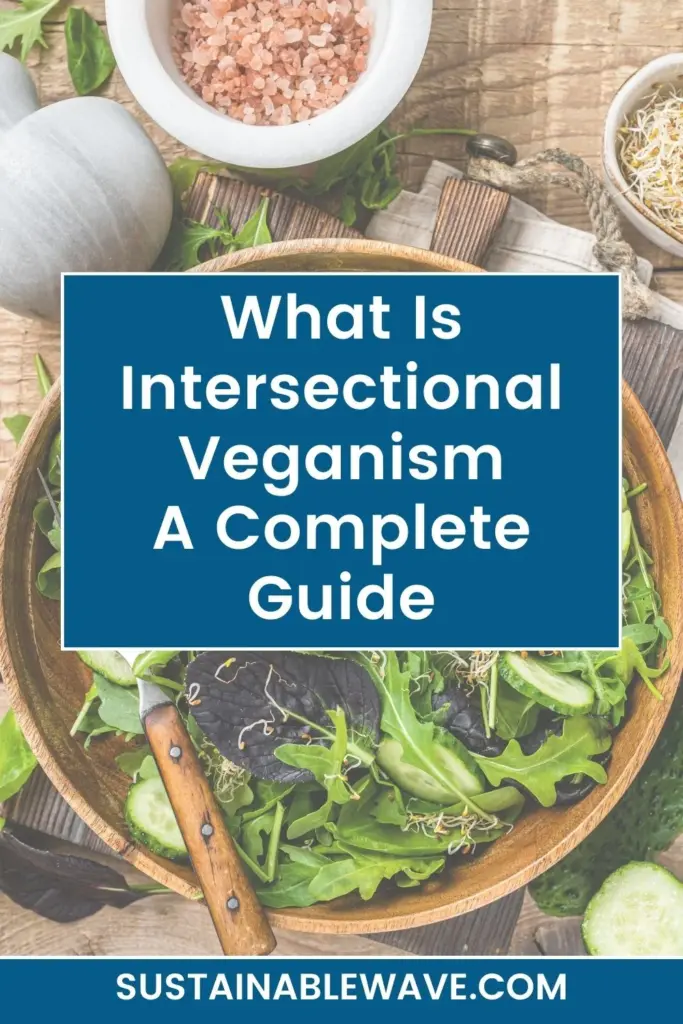
Intersectional veganism, with its unique blend of compassion and justice, provides a comprehensive approach to combating various forms of oppression.
This philosophy extends the principles of veganism to recognize and challenge all forms of injustice, promising a more equitable world for all beings.
Frequently Asked Questions
What does intersectional veganism stand for?
Intersectional veganism stands for the combined fight against various forms of oppression including speciesism, racism, sexism, and more. It extends the principles of veganism to address these interlinked injustices.
Why is intersectional veganism important?
Intersectional veganism is important because it acknowledges the interconnectedness of different oppressions. It argues that we cannot effectively combat one form of injustice without addressing others, creating a more inclusive and holistic approach.
How does intersectional veganism differ from traditional veganism?
While traditional veganism primarily focuses on animal rights, intersectional veganism recognizes and fights against multiple oppressions, making it a more inclusive approach.
How can one become an intersectional vegan?
Becoming an intersectional vegan involves understanding and acknowledging various forms of oppression and taking active steps to combat them. It requires a shift in perspective and actions beyond just dietary changes.
What challenges does intersectional veganism face?
Intersectional veganism faces criticism for its broad scope and for potentially diluting the focus on animal rights. Some people also find it difficult to address multiple oppressions simultaneously.
What is speciesism in the context of intersectional veganism?
Speciesism, in the context of intersectional veganism, is a form of oppression that discriminates based on species membership. Intersectional veganism identifies speciesism as a key oppression linked to other forms of injustice.
I’m Thomas, the owner of SustainableWave. Passionately promoting a sustainable planet. With experience in various eco-roles, I’ll share green tips, sustainability hacks, and personal eco-journeys on my blog.

